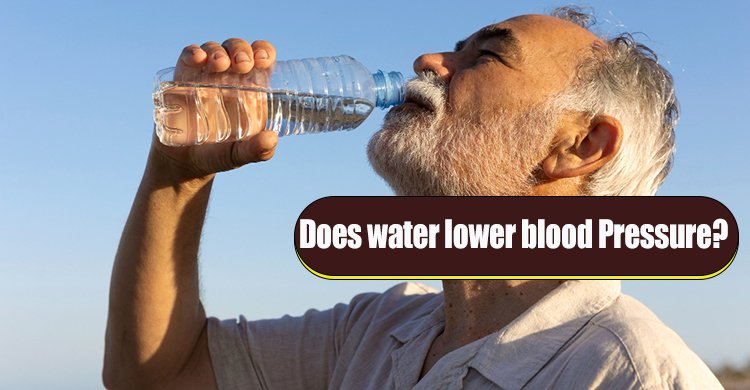![]()
![]()
![]()
![]()

Drinking water can help lower your blood pressure, especially if you are dehydrated, because human blood is composed of 90% water. When you are dehydrated, the water content in your blood decreases, leading to the narrowing of blood vessels and an increase in blood pressure. For people with chronic dehydration, this can exacerbate high blood pressure. While drinking water is not a treatment for high blood pressure, staying well-hydrated by regularly consuming six to eight glasses of water a day can help keep your blood pressure under control, along with other health measures.
This article explains how being dehydrated contributes to hypertension(HBD) and how drinking water can be a solution maintaining or lowering the blood pressure. The article also explains other measures that should be combined together with the drinking of water for better results.
Looking at Dehydration, this occurs when the body loses too much water making it not to function normally as it has to. The body loses water in many ways forexample, through sweat, excessive urination, vomiting and also if one gets diarrhea.
It’s on record that the average adults consume 45 ounces of water perday (or roughly 5 cups). The age of people that are at the greater risk of hypertension are those over 60 years because you find at average they consume only 36 ounces (4 ½ cups). However, you should note that it is not fully affirmed or a suggest that dehydration causes high blood pressure but it does partially contribute to the diseases that affect most people.
Sodium as one that is obtained from salt serves an important role in regards to the blood pressure as it maintains the proper balance of water making the body system to be in the constant state of equilibrium however it also helps to relax muscles throughout the body including those in blood vessels. The problem only arises when the sodium levels are abnormally low or high making the body functions to be severely impaired and also if the sodium levels are modesty affected, there can be some significant consequences.
One may ask why us talk of sodium in this article, you should know that when you are dehydrated, the water volumes in your body simply go down, this increasing the sodium levels which in turn causes your body to secrete a hormone that is called “Vasopressin” that prevents the kidneys from releasing water in urine and thereby preventing water loss.
The vasopressin hormone released by the kidneys to prevent water loss in urine causes the constriction which in simple terms is the narrowing of the blood vessels and this thereby increasing blood pressure.
Some studies have proved this for example, the animal studies that was conducted by the Monash University reported that chronic dehydration not only worsens high blood pressure in mice but also creates a greater risk of severe kidney damage.
Drinking the recommended volumes of water, a day has many benefits health wise, including:
It highly recommended on average to drink six to eight ounce glasses of water per day to supplement the other water that is gained from the food we consume.
However, this may vary according to individual needs based on age, sex, diet, physical activity, even certain medications that people do take to facilitate their health.
Some time at point, the National Institute of science recommended the following adequate levels for total water intake in the U.S (united states)
The general view is of the idea that there is no one-size-fits-all solution for everyone. To estimate your individual needs, one is advised to speak to his or her health care provider- particularly if you are at the risk of hypertension
If you have high blood pressure, it is best to avoid or limit sugary drinks and those that are high in caffeine, including
You don’t have to be scared thinking that you’re going to rely only on water in order to keep your blood pressure at normal or to lower it. There is some evidence that has proven that besides water, there also other drinks that be of great benefit to people with high blood pressure. You should not take it in the way that these drinks cure high blood pressure but can be relied on as a safe measure to prevent high blood pressure and also to maintain a ample hydration in addition to the water you drink each day.
These drinks include:
In conclusion, drinking adequate water can help manage blood pressure by preventing dehydration, which can cause blood vessel constriction and raise blood pressure. While water alone is not a treatment for high blood pressure, staying well-hydrated—typically six to eight glasses a day—supports overall cardiovascular health. Along with water, other drinks like beet juice, tomato juice, low-fat milk, and green tea can also help lower blood pressure. Maintaining a balanced diet and consulting with healthcare providers are essential for effective blood pressure management.